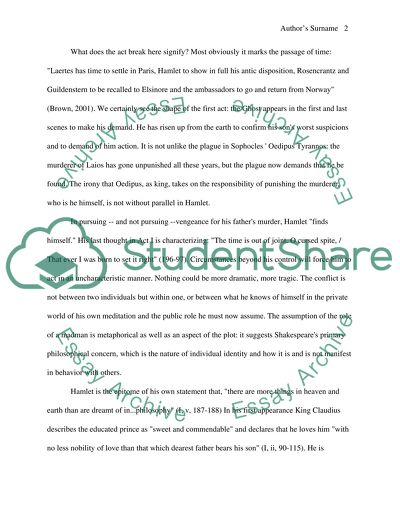Cite this document
(“Hamlets Tragic Flaws Research Paper Example | Topics and Well Written Essays - 1500 words”, n.d.)
Retrieved from https://studentshare.org/miscellaneous/1573114-hamlets-tragic-flaws
Retrieved from https://studentshare.org/miscellaneous/1573114-hamlets-tragic-flaws
(Hamlets Tragic Flaws Research Paper Example | Topics and Well Written Essays - 1500 Words)
https://studentshare.org/miscellaneous/1573114-hamlets-tragic-flaws.
https://studentshare.org/miscellaneous/1573114-hamlets-tragic-flaws.
“Hamlets Tragic Flaws Research Paper Example | Topics and Well Written Essays - 1500 Words”, n.d. https://studentshare.org/miscellaneous/1573114-hamlets-tragic-flaws.


